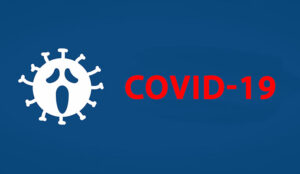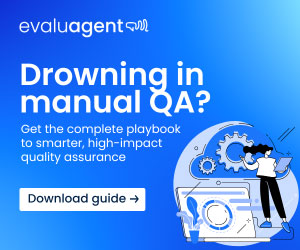Cactus Search’s Francesca Randle kicks off with one of those perennial call centre problems: how to set up a truly effective assessment centre.
In business, recruiting the right people can mean the difference between success and failure. Most organisations spend upwards of 4,000 filling a position, yet the results vary widely.
It’s a good job, then, that properly designed assessment centres can help to achieve outstanding returns from investment in recruitment – delivering effective and motivated people.
Widely recognised as a powerful means of assessing candidates in competencies vital to organisational success, assessment centres can form part of a reliable and objective route for allowing you to assess whether the candidate can demonstrate their skills and experience, and can provide an accurate profile of an individual’s skills, abilities and style of working.
Assessment centres also offer candidates and employees the opportunity to prove their capabilities, develop their strengths and identify areas of comparative weakness. However, prior to spending your valuable time and money on setting up such a centre, it is imperative to understand and be realistic about the call centre industry as a whole.
In truth, many organisations employing high numbers of call centre staff will more often than not experience high levels of attrition. It is a ‘collective’ issue, but a realistic one. The industry is extremely transient.
An increase in salary elsewhere can effect a huge transition of staff. There are often fewer career opportunities in such a ‘pyramid structure’ sector. It can often be extremely repetitive, and can sometimes be very pressurised if sales and customer service targets are not met.
Organisations are frequently so focused on attracting and identifying the ‘right’ candidate at recruitment stage that they fail to focus on and provide necessary funds for retaining staff once they have commenced employment.
Yet, improving employee retention is a key issue for every organisation – one based upon the following beliefs:
- It is difficult for employers to retain good employees if they do not have a process to hire the right people in the first place.
- Retention processes must directly support the reasons that successful, satisfied employees stay.
- Good induction, training, development, succession planning and – most importantly – effective management, can have a huge effect on overall attrition rates.
Therefore, before you embark on timely and often expensive assessment centres, make sure you take a holistic view of your overall employee strategy and spend your budget accordingly.
Identify the Right Assessment Criteria
Okay, so you’ve decided to take the plunge and are going to set up an assessment centre. What now?
Well, firstly consider the following statement again: “Retention processes must directly support the reasons that successful, satisfied employees stay”. In other words, take some time to understand your existing workforce in order to identify ‘talent’ during the recruitment process.
Utilise personality and motivation profiling on your existing employees in order to understand which personality types are suited to sales roles and which are better suited to service roles, and thereby identify the optimum personality and motivation profile for customer sales and service advisors.
The results of this study will not only help you identify which dimensions of personality and motivation are most relevant when considering sales and service agent performance, it will also help pinpoint what differentiates your good performers from the poor ones, and so help you recognise potential causes for concern.
Remember: these results will provide key information that can be utilised in future selection and development activities, thus ensuring that relevant assessment criteria are being used.
That’s all well and good, you might say, but how do you define the skills required to determine your perfect employee when it comes to the actual assessment centre?
Actually, it is often necessary to have a blend of hard and soft skills in order to successfully work within a call centre environment. Important personal qualities tend to include pride in one’s work and commitment to the job, as well as patience, empathy, resilience, dedication, tenacity and reliability.
As for the requisites, you should typically look for solid one-to-one communication capabilities, a good telephone manner, competence in problem solving, and the ability to process and analyse raw data and information.
And how do you effectively assess these skills at assessment stage?
Once employers have defined their ideal candidate, they need to find ways of guaranteeing that their potential new recruits meet their requirements.
As the Chartered Institute of Personnel Development (CIPD) indicates, there is no one way to go about testing for the right candidate: “No single technique, irrespective of how it is designed or administrated, is capable of producing perfect selection decisions that predict with certainty which individuals will perform well in a particular role.”
Indeed, the CIPD suggests that a “combination of techniques greatly increases the accuracy of selection decisions.”
To find the ideal call centre agent, a mix of psychometric testing and skills assessment should provide a clear portrait of every candidate. Furthermore, the same combination of evaluation methods can be used to identify skills gaps and training needs in existing employees and help them to do a better job.
Final Points to Consider
1) Ensure Assessment Events Are Held Frequently
Many candidates will drop out of the process if there is a delay on timescales. Often it is easier to set up smaller and more frequent events than larger periodic ones. The market is far too transient to expect candidates to wait.
2) Over-Book Events
Candidates will always drop out and often not turn up at all, so over-book the number of candidates invited to events to ensure you are not left with only a minimum number of attendees.
3) Ensure Assessment Events Are Held On-Site
Where possible, hold assessment events on-site. This will give candidates a good opportunity to visit the site and get a feel for the environment. It is also the most cost-effective location.
4) Offer Quickly
If possible make offers to candidates on the spot or, if not, make sure you are organised enough to make offers quickly. Again, speed through the process is paramount.
5) Sell the Opportunity
This is as much about you selling yourselves to them as vice versa. Grab their interest, have a motivational speaker at the beginning, make sure all staff running the event are professional, approachable and are selling a strong message.
6) Plan Effectively
Make sure candidates are not left hanging about, keep the pace of the event moving and do everything you can to ensure that candidates enjoy the experience. Whether they are successful or not, they should come away with a strong message.
7) Use Employees to Run Events
Where possible, utilise company employees to run events. Not only is it more cost-effective, but they will always give a better and more knowledgeable account of the opportunity and the business.
8) Consider the Use of Online Assessment
Although it is paramount that you meet and interview candidates face-to-face, there are now many excellent tools for assessing skills online, which are hugely cost- and time-effective.
Written by: Francesca Randle, Director at Cactus Search
For more information and advice to help you improve your contact centre recruitment, read these articles next:
- 6 Top Tips for Maintaining Quality Recruitment Under Pressure
- Are Your Job Ads Holding Back Your Contact Centre Recruitment?
- 12 Effective Strategies for Successful Call Centre Recruiting
Author: Francesca Randle
Reviewed by: Robyn Coppell
Published On: 25th Jul 2006 - Last modified: 10th Sep 2025
Read more about - Call Centre Management, Call Centre Answers, Francesca Randle, Management Strategies, Recruitment and HR




































